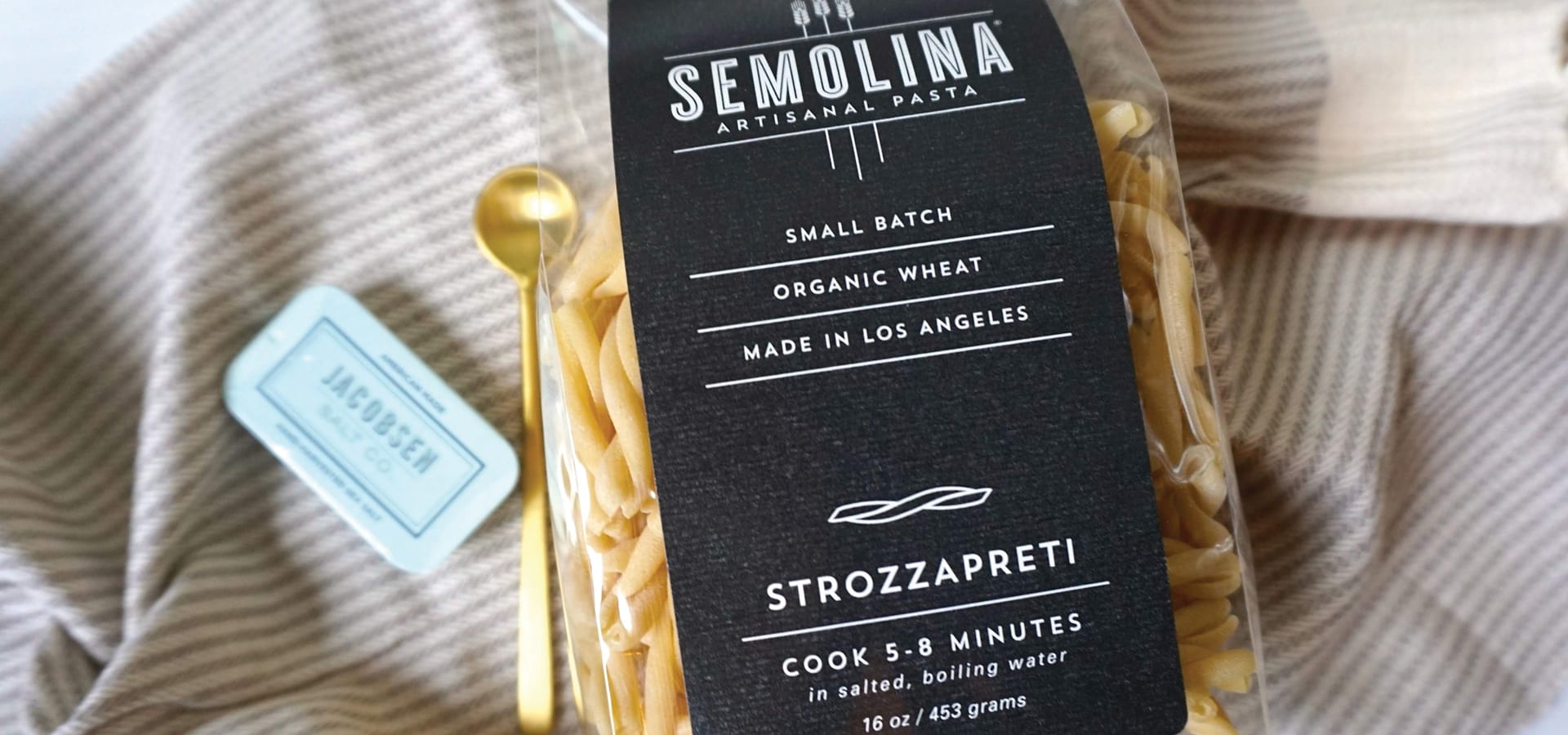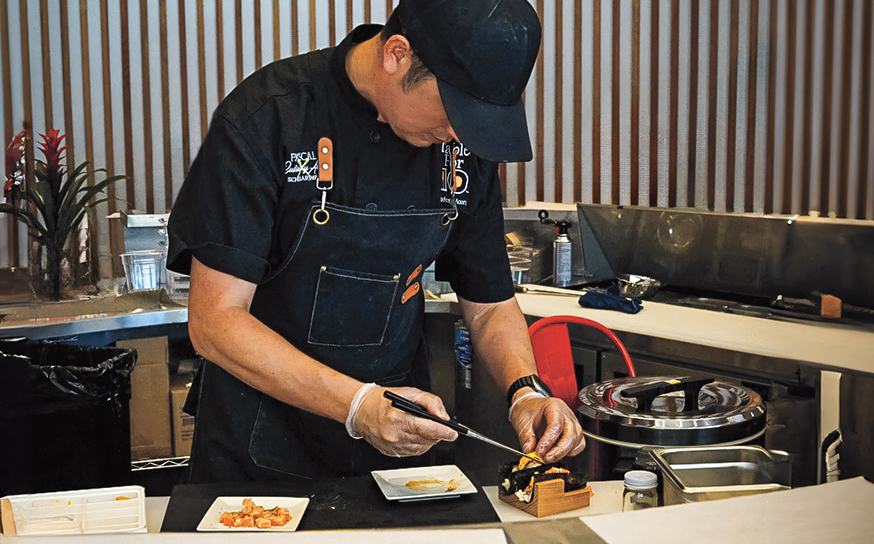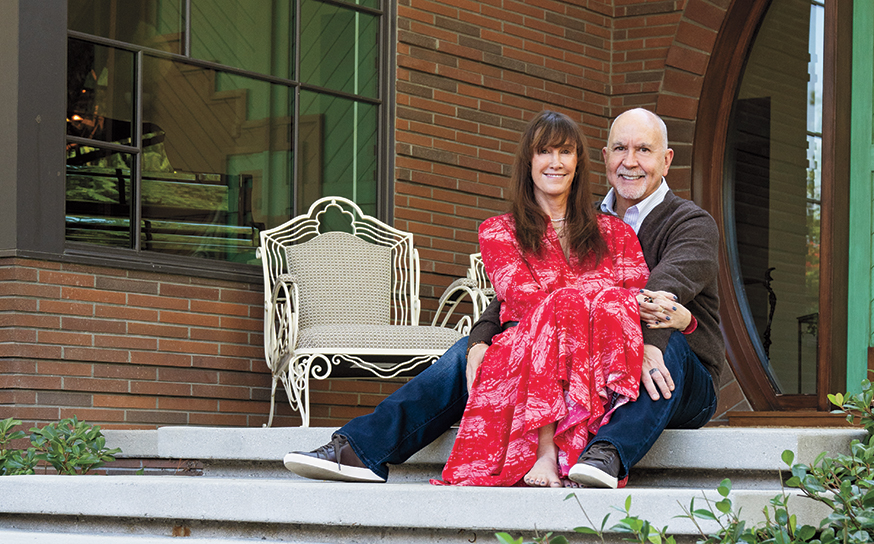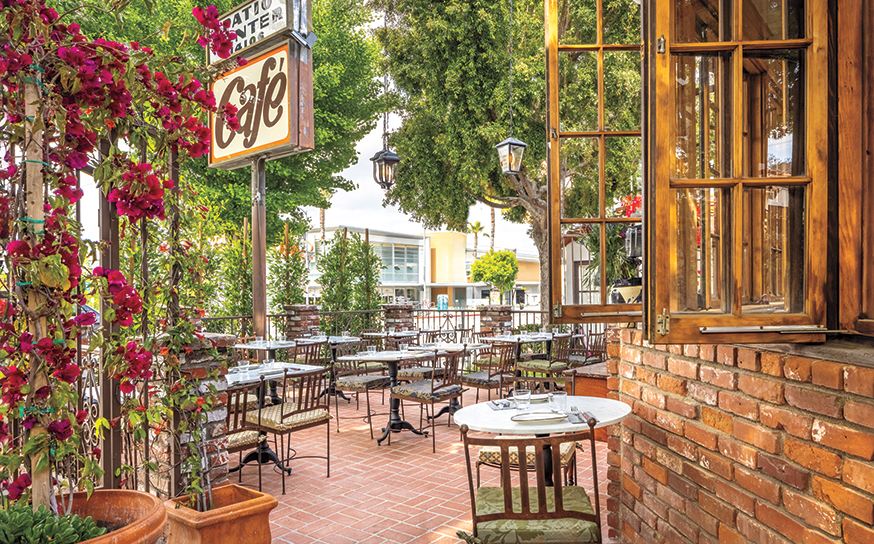Step Inside Semolina Pasta in Pasadena, Where Small Batch Pasta is Made in the Time Honored, Traditional Way
Talk about a rare find!
-
CategoryEat & Drink, People
-
Written byKaren Young
Wearing a white bib apron, her blonde hair pulled back by a headband, Leah Ferrazzani stands over freshly extruded rigatoni laid out on racks, her fingers lightly circulating the tube-shaped pasta in preparation for the dryer.
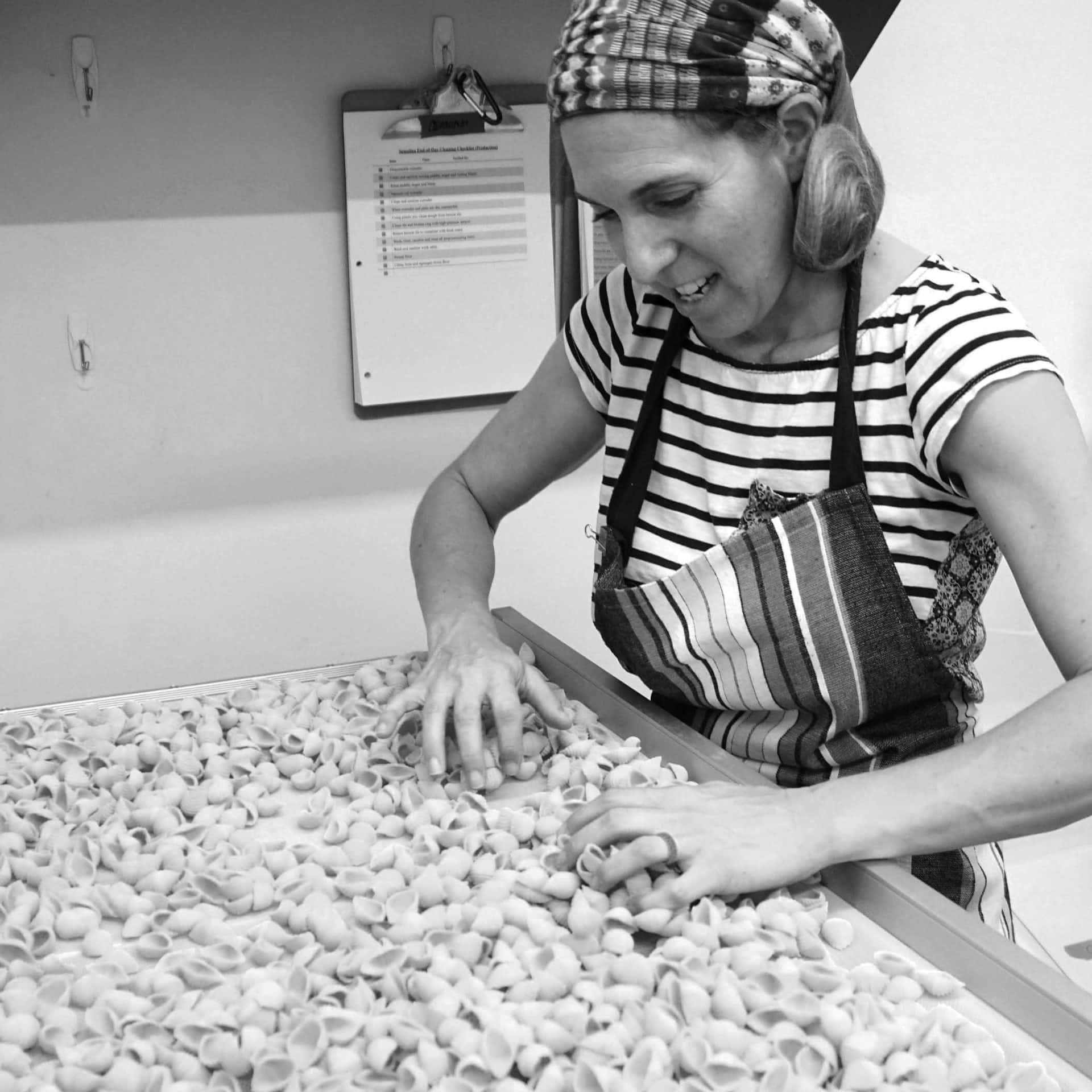
The 300-square-foot organic pasta lab and provisions shop is divided by an 8-foot glass window. Until she hired one person to help just a few months ago, she was single-handedly manufacturing and packing 750 pounds of dried pasta and 150 pounds of fresh pasta per week.
The 41-year-old’s path to becoming a pastaia happened serendipitously. A former food writer, Leah always made her own fresh pasta, but didn’t have the time after the birth of her two kids. And finding locally made organic dried pasta to stock her pantry proved difficult.
She started researching and found that half the durum grown in the U.S. is exported to Italy to make into pasta, which is then sent back to the States.
“I was just like, okay, well that’s asinine … and it’s not a matter of not having a good raw ingredient because they don’t have the market on great durum wheat or great semolina in Italy. So that means it’s a matter of craft—and I can learn craft.”
Determined to make dried pasta the traditional way with only water and semolina—the coarse flour made from durum wheat—Leah ventured to Italy’s Amalfi Coast and Naples to observe some of the world’s most renowned pasta makers. “I had a translator because everyone spoke Neapolitan.”
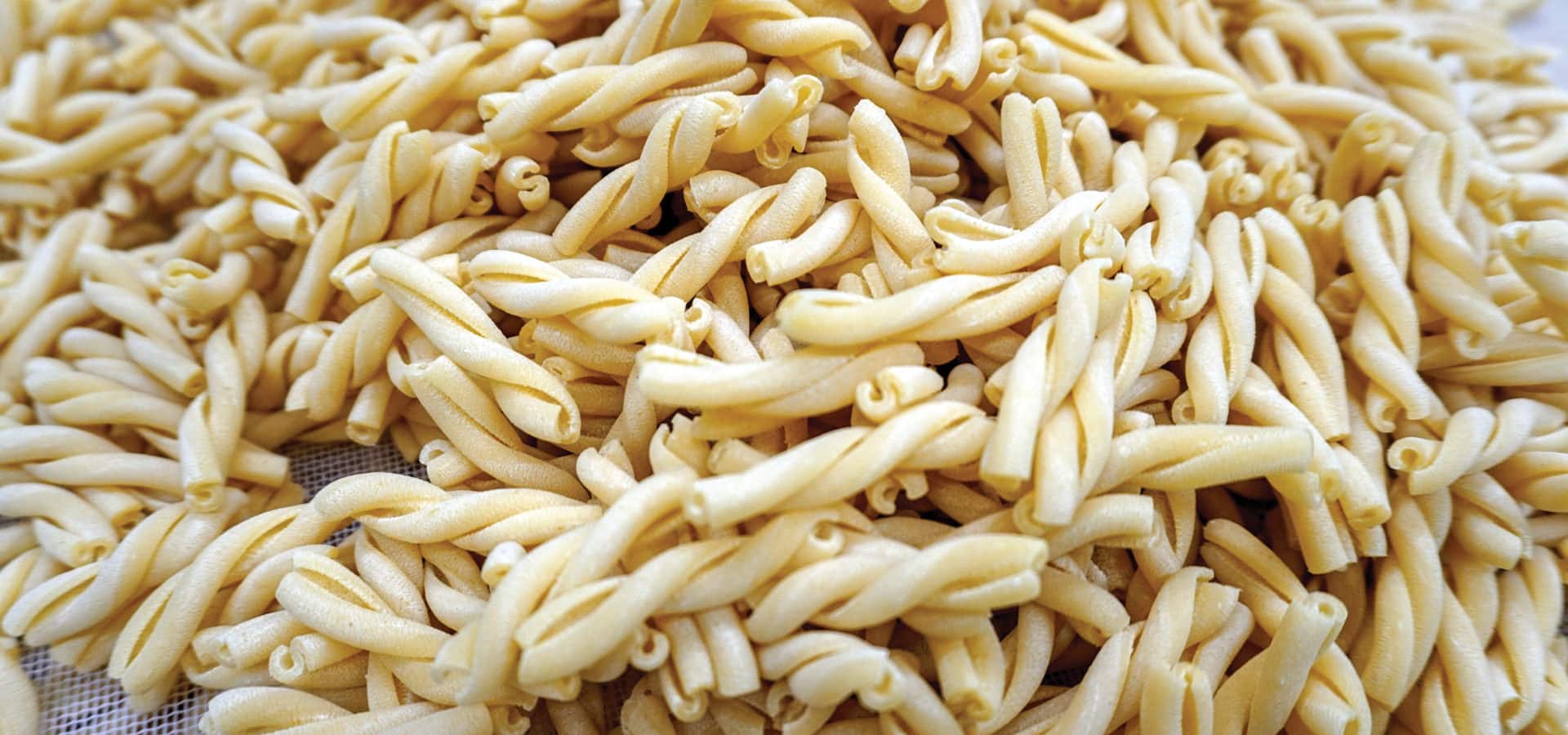
Leah relays how after returning home she went MacGyver on her laundry room, creating a makeshift drying environment, which entailed tiling walls, hooking up a Vicks vaporizer to an egg incubator hydrostat, and box fans to regulate the humidity for drying the pasta.
Within a year, her cottage business outgrew the laundry room, and in 2015, with $26,000 raised though Kickstarter, Leah moved to LA Prep, a communal commercial complex in Lincoln Heights. By 2017, Semolina Artisanal Pasta was carried in 125 grocery stores and 60 boutiques across the country.
“I like to look in the eyes of the people I’m feeding and talk to them about food. Cooking can be intimidating and eating is so fraught these days, so I just like that very natural simple interaction. That is just your basic humanity—connecting with people over food.”
But the stress was too much. “That growth almost bankrupted me,” confides Leah. “The more orders I had to fill, my expenses increased.”
She decided to downsize, let go of supermarket clients and leave LA Prep. A few months later she found her current location, and with the help of a second Kickstarter campaign was able to build out a pasta lab and begin again.
Leah sources certified organic durum semolina mostly from South Dakota and Montana. She mixes water with semolina and extrudes the various shapes through bronze dies, creating dense, textured pasta that “grabs sauce”—as opposed to industrial Teflon dies that result in a nonadhesive, smooth texture.
The pasta is then slow-dried in a static dryer at 100 degrees for 16 to 20 hours, a method that retains the flavor and nutritious qualities of the wheat.
Leah credits chef Matt Molina for influencing her to create a fresh pasta line for chefs. “I knew I always wanted to work with Leah when opening HIPPO (in Highland Park), but couldn’t incorporate the longer cooking time,” shares Matt. “I suggested she test her freshly extruded pasta before it dried and it cooked up beautifully. It’s exciting to see how this has opened up an entire market of chefs around town.”
Restaurateur Nancy Silverton, who uses Semolina’s fresh line at Michelin-starred Osteria Mozza, concurs. “Before Leah we were using pasta with a 10-minute drop time. Now we get her excellent extruded pasta with about a 3-minute drop time, which means a lot in a busy restaurant. Just because pasta is fresh and extruded doesn’t mean it’s good. I’ve had plenty of yummy versions. But Leah’s is of outstanding quality.”
Semolina Artisanal Pasta is now back in about 100 stores, including Whole Foods and Joan’s on Third. It is also served at The Bellwether in Studio City.
Leah hopes to expand into an Italian deli, but for now she’s satisfied making pasta and chatting with customers browsing in her shop.
“I like to look in the eyes of the people I’m feeding and talk to them about food. Cooking can be intimidating and eating is so fraught these days, so I just like that very natural simple interaction. That is just your basic humanity—connecting with people over food.”
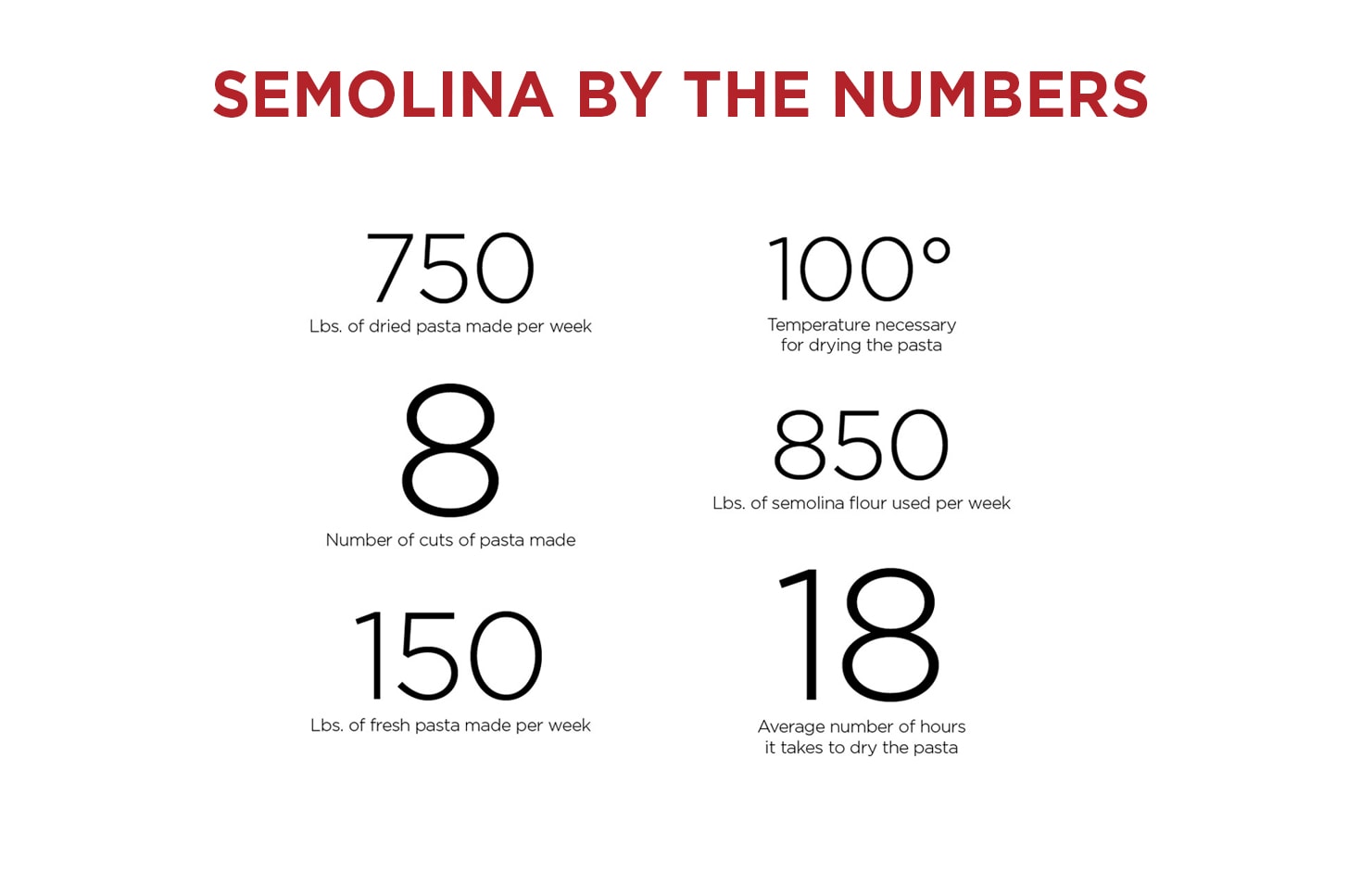
Join the Valley Community






